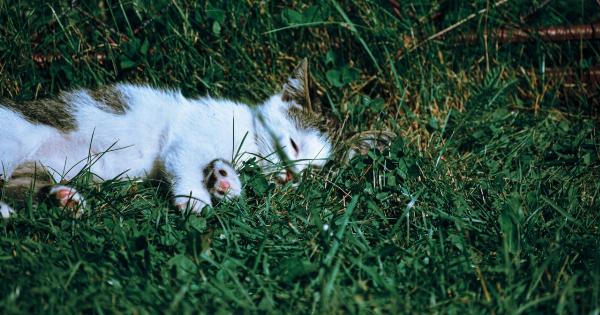Sleep is an essential aspect of our lives, playing a vital role in our overall health and well-being. It not only allows our bodies to rest and rejuvenate but also plays a crucial role in various physiological and cognitive processes.
The quality and duration of our sleep heavily depend on several factors, including our daily habits, lifestyle choices, and even our nutrition. In this article, we explore the science behind sleep and nutrition and provide valuable tips on what to eat and what not to eat to promote a good night’s sleep.
The Importance of Sleep
A good night’s sleep is essential for numerous reasons. It is during sleep that our bodies repair themselves and produce essential hormones.
Lack of quality sleep can lead to various health issues, including weakened immunity, mood disturbances, increased risk of chronic diseases, and even cognitive decline. Therefore, ensuring a sufficient amount of quality sleep is crucial for maintaining optimal physical and mental health.
The Role of Nutrition in Sleep
What we eat and drink can significantly influence the quality and duration of our sleep. Certain nutrients can promote relaxation and enhance sleep quality, while others can interfere with our ability to fall and stay asleep.
Understanding the relationship between nutrition and sleep can help us make better choices when it comes to our diet, promoting a more restful night’s sleep.
Foods to Eat for Better Sleep
1. Fatty Fish: Fatty fish like salmon, tuna, and mackerel are excellent sources of vitamin D and omega-3 fatty acids.
These nutrients not only promote heart health but also help in regulating serotonin levels, the hormone responsible for melatonin production, which plays a crucial role in sleep regulation.
2. Almonds: Almonds are a great source of magnesium, which can improve sleep quality by reducing inflammation and promoting muscle relaxation.
Furthermore, they also provide protein and healthy fats, which help stabilize blood sugar levels throughout the night.
3. Walnuts: Walnuts are another nut that can support a good night’s sleep. They are rich in melatonin, a hormone that regulates our sleep-wake cycle.
Incorporating walnuts into your diet may help improve sleep quality and regulate your circadian rhythm.
4. Turkey: Turkey contains tryptophan, an amino acid that promotes the production of serotonin and melatonin, contributing to a better night’s sleep.
Including a turkey breast or lean slices of turkey in your dinner can be a healthy and sleep-supportive choice.
5. Chamomile Tea: Chamomile tea has been used for centuries as a natural remedy for sleep troubles. It contains apigenin, an antioxidant that binds to certain receptors in the brain that promote sleepiness and reduce insomnia symptoms.
6. Kiwis: Kiwis are packed with vitamins and antioxidants, but they also offer specific benefits for sleep. They contain serotonin and antioxidants like flavonoids, which can help regulate sleep patterns and improve sleep quality.
7. Whole Grains: Whole grains, such as oats and quinoa, have a high glycemic index, which means they can promote the production of insulin and tryptophan in the body.
This can lead to increased sleepiness and, ultimately, a better night’s sleep.
8. Dark Chocolate: Dark chocolate contains serotonin and magnesium, both of which support relaxation and better sleep.
However, it should be consumed in moderation, as it still contains caffeine, which can interfere with sleep if consumed in excessive amounts.
9. Leafy Greens: Leafy greens like spinach and kale are rich in calcium, which helps the brain use tryptophan to produce melatonin. Including these nutrient-dense greens in your diet can promote better sleep quality.
10. Low-Fat Dairy Products: Low-fat dairy products like milk and yogurt are excellent sources of calcium and tryptophan, which can contribute to better sleep quality.
Foods to Avoid for Better Sleep
1. Spicy Foods: Spicy foods can cause indigestion and heartburn, making it difficult to fall asleep comfortably. Avoid consuming spicy meals too close to bedtime to minimize sleep disruptions.
2. Caffeine: Caffeine is a well-known stimulant that can interfere with sleep. It is present in various beverages like coffee, tea, and energy drinks, as well as some chocolates and medications.
To promote better sleep, it is advisable to limit caffeine consumption, especially in the afternoon and evening.
3. Alcohol: While alcohol may make you feel drowsy initially, it can disrupt your sleep pattern and lead to frequent awakenings during the night. Avoid consuming alcoholic beverages close to bedtime to maintain a healthier sleep routine.
4. High-Fat and Heavy Foods: High-fat and heavy foods require a longer time to digest, which can lead to discomfort and indigestion during sleep.
It is best to avoid large high-fat meals close to bedtime and opt for lighter, easily digestible options instead.
5. Processed and Sugary Foods: Processed foods and those high in refined sugars can cause blood sugar spikes and crashes, negatively impacting sleep quality. Opt for whole, unprocessed foods and natural sources of sweetness instead.
6. Excessive Fluid Intake: While hydration is important, consuming excessive fluids close to bedtime can disrupt sleep by causing frequent bathroom trips. It is recommended to limit fluid intake in the hours leading up to bedtime.
7. High-Protein Meals: High-protein meals, especially those rich in red meat or spicy seasonings, can be difficult to digest and may cause discomfort during sleep.
It is advisable to consume moderate amounts of protein and opt for leaner options for a more restful sleep.
8. Greasy or Fried Foods: Greasy and fried foods can disrupt sleep by causing indigestion and discomfort. These foods can also increase the risk of acid reflux, which can disrupt sleep quality.
Opt for healthier cooking methods like baking or grilling instead.
9. Sodas and Carbonated Drinks: Sodas and carbonated drinks can cause bloating and discomfort, making it challenging to fall asleep and stay asleep throughout the night. It is best to avoid them, especially close to bedtime.
10. Excessive Salt: Excessive salt intake can lead to fluid retention, causing swelling and discomfort during sleep. Limiting sodium intake from processed and packaged foods can help promote better sleep quality.
Conclusion
Understanding the science behind sleep and nutrition can help us make informed choices about what we eat to improve our sleep quality.
Incorporating sleep-supportive foods like fatty fish, almonds, turkey, kiwis, and chamomile tea into our diet can promote relaxation and enhance our ability to fall asleep and stay asleep. On the other hand, avoiding spicy foods, caffeine, alcohol, high-fat and heavy meals, and processed foods close to bedtime can help minimize sleep disruptions.
By paying attention to our diet and making conscious choices, we can optimize our sleep and wake up feeling refreshed and energized.




























